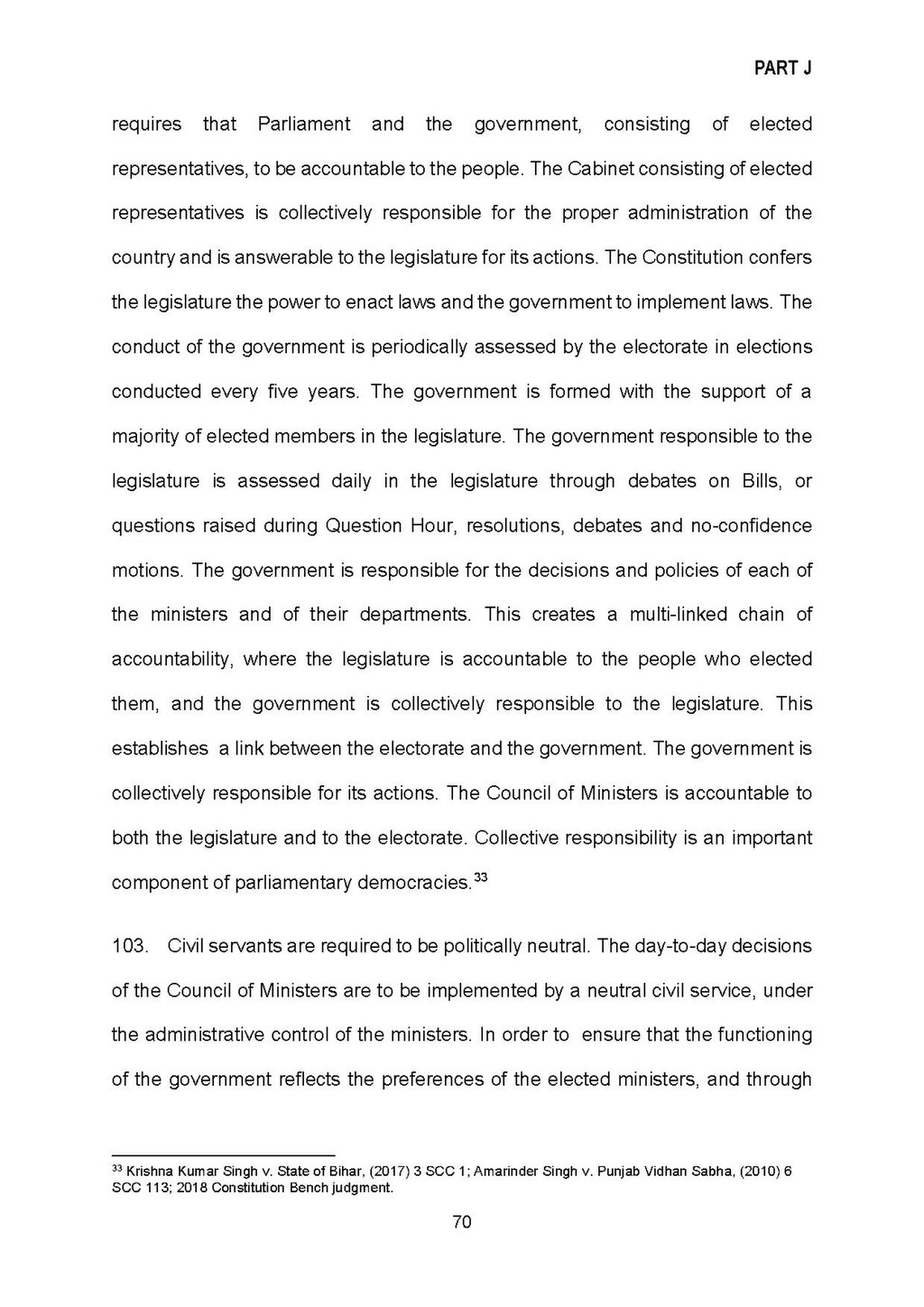requires that Parliament and the government, consisting of elected representatives, to be accountable to the people. The Cabinet consisting of elected representatives is collectively responsible for the proper administration of the country and is answerable to the legislature for its actions. The Constitution confers the legislature the power to enact laws and the government to implement laws. The conduct of the government is periodically assessed by the electorate in elections conducted every five years. The government is formed with the support of a majority of elected members in the legislature. The government responsible to the legislature is assessed daily in the legislature through debates on Bills, or questions raised during Question Hour, resolutions, debates and no-confidence motions. The government is responsible for the decisions and policies of each of the ministers and of their departments. This creates a multi-linked chain of accountability, where the legislature is accountable to the people who elected them, and the government is collectively responsible to the legislature. This establishes a link between the electorate and the government. The government is collectively responsible for its actions. The Council of Ministers is accountable to both the legislature and to the electorate. Collective responsibility is an important component of parliamentary democracies.[1]
103. Civil servants are required to be politically neutral. The day-to-day decisions of the Council of Ministers are to be implemented by a neutral civil service, under the administrative control of the ministers. In order to ensure that the functioning of the government reflects the preferences of the elected ministers, and through
- ↑ Krishna Kumar Singh v. State of Bihar, (2017) 3 SCC 1; Amarinder Singh v. Punjab Vidhan Sabha, (2010) 6 SCC 113; 2018 Constitution Bench judgment.
70
